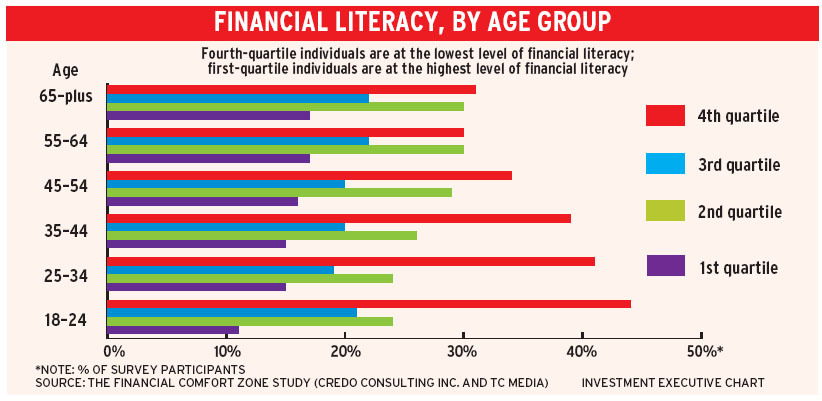
Canadians’ good habits and high level of knowledge in the area of personal finance have helped Canada nab a third-place ranking in a global survey of financial literacy levels.
The International Network on Financial Education (INFE), a part of the Organization for Economic Co-operation and Development (OECD), released its International Survey of Adult Financial Literacy Competencies on Tuesday. The report measures and compares the financial knowledge, attitudes and behaviours of adults in 29 countries, according to an announcement released by the Financial Consumer Agency of Canada (FCAC) on Wednesday.
Canada tied for third place with Norway while France and Finland came in first and second place, respectively.
The report finds that Canadians have healthy financial habits, which include setting and achieving long-term financial goals and monitoring their personal finances. The majority (60%) of Canadians were also able to answer most questions correctly when they were tested on their financial knowledge. And the report states that Canadians also have the right attitude when they think about long-term use of their money. For instance, many Canadians are likely to disagree with the statement, “I tend to live for today and let tomorrow take care of itself.”
However, the global report suggests some areas that can be improved. Although many Canadians received a high score on a test of financial knowledge, their confidence regarding that knowledge is low. This is problematic, given that financial confidence has been known to support good financial decisions, according to the FCAC. Only about 30% of Canadians rated their financial knowledge at a high level.
There was also a significant difference in the financial knowledge levels between genders, with more than 70% of men receiving a high score on the test compared to 50% of women. Specific topics in which women would tend to score lower than men included compound interest and inflation.
The FCAC’s own analysis of the Canadian data in the report indicates that Canadians have a high potential to rely on debt to cover living expenses. One-third of respondents find it difficult to cover their living expenses using only their income and many of the individuals who struggle would have to draw on debt to make ends meet. Half of Canadians would need to borrow money or move to another home within six months if they were to lose any of their income, states the FCAC.
“The report’s findings align with research by the [FCAC] into the financial literacy gaps and needs of Canadians. FCAC is working to address these needs by helping Canadians build the confidence and knowledge to make smart financial decisions, manage money and debt, as well as plan and save for the future,” states the agency’s announcement. “Canada’s place in the top three countries worldwide on financial knowledge, attitudes and behaviours speaks highly about the impact of the national, collaborative effort to improve Canadians’ financial well-being.”
Photo copyright: designer491/123RF